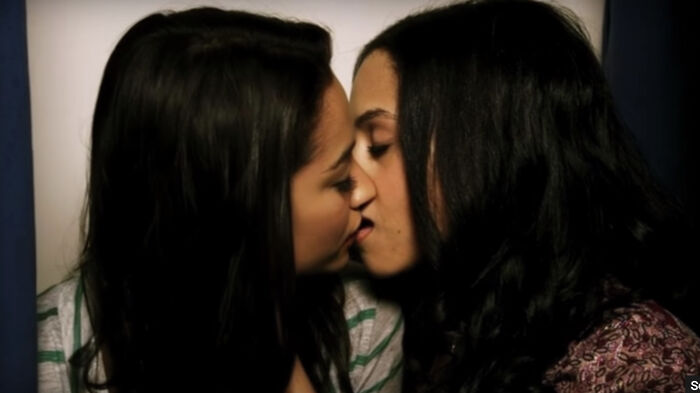Playing the gay card
Dealing with life’s problems is difficult enough. It’s harder for two mums in a same-sex relationship

“What we need,” said my step-mum, “is a really confident man with a deep voice and a posh accent.”
This, as you may be able to imagine, is not the kind of sentence you would expect to hear from your mother’s girlfriend.
Last spring, my mother and her partner decided to move to a houseboat. They were done with renting, done with recalcitrant landlords who never got anything fixed and for whom we had to pretend that we didn’t have a dog. A friend of a friend offered a mooring fairly close to my hometown and within the space of about two months, my mum and step-mum became – I kid you not – a pair of encyclopaedias on everything houseboat. Every time I skyped home, I was treated to the latest update on portholes versus windows, cassette toilet versus septic tank, and what colour mushroom vents they were leaning towards. Eventually, the boat was designed and ordered and the building work began. But, cut to August and the boat was a month behind schedule and the company was being hopelessly evasive about when it would be ready. And now I was looking across the kitchen table as my step-mum dejectedly hung up on another useless phone call. “I’ve tried, your mum’s tried,” she said. “They just don’t take two women seriously.”
“I’ve tried, your mum’s tried,” my step-mum said. “They just don’t take two women seriously.”
It's a feeling I think every woman has had. Impossible to quantify, difficult to prove, that nagging suspicion that the conversation would be going a little differently if you were six foot tall with a gravelly baritone. In a way, living in a household with no adult men in it only highlights the sexism that women everywhere experience anyway, not just queer women. Everyone has their own examples: in a dispute with my brother’s uni, my dad’s male, private-educated privilege bulldozes its way to the people in charge far more quickly than my mum’s repeated efforts. A close friend, a single mum, comes home from a doctor’s appointment for her daughter near tears at the way the older, male, middle-class doctor had talked over her and brushed off her concerns. To some extent, the discrimination that lesbian couples face is a case of amplified sexism – the absence of a man in the equation shows up how much harder it is for women to be seen and heard.
This often hits hard financially. A double income is substantially less impressive when the gender pay gap gets doubled too. And it isn’t a coincidence that the men my mum and step-mum used to be married to - the men who didn’t take career breaks to raise the kids - both remained homeowners after the split, while even boat-owning was on the cusp of what was viable for my mum and her partner.
To some extent, the discrimination that lesbian couples face is a case of amplified sexism
But to look at this as merely an issue of sexism squared feels insufficient. It matters that these issues specifically affect queer women. It matters that relationships without men in them face an additional level of stress and strain. The term intersectionality, first coined in 1989 by American legal scholar and civil rights activist Kimblerlé Crenshaw, describes the places where two systems of oppression create an experience of womanhood that must be understood in terms of both of them and the way they inform and reinforce each other. It is no good, I realised as I sat with my step-mum in the kitchen, to call this an unfortunate side-effect of misogyny. The fact that it disproportionately hurts women in same-sex relationships is important, and can only be answered with an intersectional mindset.
My step-mum did get an update on the boat, but only after she accused the men on the other end of the phone of sexism. “I hate this,” she said. “I feel like I’m playing the gay card. I don’t want to play the gay card.” And this is what these systems of oppression do. They create the conditions in which the only way to get your problem addressed is to name it in those terms, at which point you become the lesbian obsessed with your own identity, holding those ugly words – homophobia, sexism – over other people’s heads until you get what you want. What my stepmother wanted was simply not to have had the problem in the first place.
 News / Downing investigates ‘mysterious’ underground burial vault 29 December 2025
News / Downing investigates ‘mysterious’ underground burial vault 29 December 2025 News / Unions protest handling of redundancies at Epidemiology Unit30 December 2025
News / Unions protest handling of redundancies at Epidemiology Unit30 December 2025 Lifestyle / Ask Auntie Alice29 December 2025
Lifestyle / Ask Auntie Alice29 December 2025 Features / ‘Treated like we’re incompetent’: ents officers on college micromanagement30 December 2025
Features / ‘Treated like we’re incompetent’: ents officers on college micromanagement30 December 2025 Science / Astronomical events to look out for over the break29 December 2025
Science / Astronomical events to look out for over the break29 December 2025










